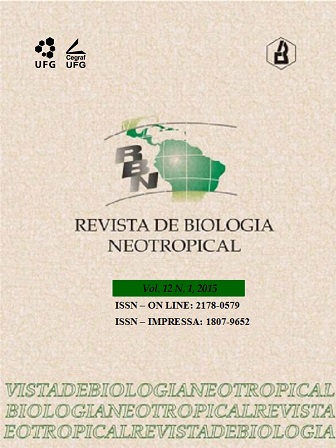Impacts of Development on Traditional Communities: Agri-food Transition and Adaptive Adjustments
Keywords:
Agri-food systems, development, use of natural resources, traditional agroecosystems. isotope ecologyAbstract
The greater access to the urban and globalized world may be endangering the livelihood of traditional peoples, generating impacts on food and agri-food system. Therefore, aiming to infer these possible impacts of development and adaptation strategies of traditional peoples on new socioeconomic demands, the study was conducted with the Kalunga Quilombo remnants, in the state of Goiás, andartisanal fishermen from Apeú Salvador Island, in the state of Pará. Through quantitative and qualitative evaluations, the goal of this study was to understand the impacts on traditional communities due to increased urbanization, greater access to the market economy and public policy. Qualitative evaluations have been applied to identify local socioeconomic conditions, food habits, production for self-consump-tion and ways of natural resources usages, through the food 24h recall, local people reports and field ob-servations. Quantitative evaluation was performed through isotope analysis of interviewee’s fingernails and assessment of the influence factors on local food. The use of isotopic ecology allowed evaluatingthe diet regarding the source of origin of food products, natural or industrial, and characterizing foodhabits according to the level of the trophic chain, as well as the presence of meat, fish and others. Thecombination of qualitative and quantitative research methods allowed identifying elements of agri-food and changes in the forms of use of natural resources in the most accessible communities. In contrastto this pattern of transformation, in some communities, it was identified a scenario of resistance of the traditional way of life and reorganization through incentives to local agro-extractive production. Based on fish production in Apeú Salvador and cassava flour in the Kalunga community, the maintenance ofwork and encouragement to local autonomy are alternatives that may enhance the adjustment and adaptation to global changes of modernity. Thus, although some of the results reveal the change in food habits and use of natural resources, under certain conditions the impacts of development on traditional peoples can be bypassed. Despite the relativity, the interferences of modernity on the agri-food systemof traditional communities are real and need to be properly taken into account by external interventionsand public policies.
Downloads
Downloads
Published
How to Cite
Issue
Section
License
The expontaneos submmition of the manuscript automaticaly implies in the cession of all patrimonial rights for the Journal of Neotropical Bilogy (RBN) after publication. The autor allow the right of first publication of the article to the RBN, under Creative Commons Attribution 4.0 (CC BY-NC 4.0) Licence.
There are garanties for the authors to the authorial and moral rights, for each one of the articles published by RBN, with permissions:
1. The use of article and contents for the education and researches.
2. The use of the article and their contents, linking to the Article on the web site of the RBN, allowing the divulgation on:
- institutional closed web (intranet).
- open access repositories.
3. Preparation and divulgation of the other publication derived from the article and its content, if there is citation of the original publication by RBN.
4. Make printed copies in small quatinties for personal use.

















